Top 10 Most Important Events of the 21st Century
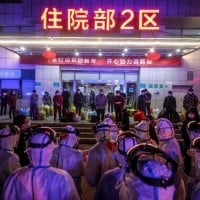
The COVID-19 pandemic disrupted the lives of everyone across the world for at least two years (as of 2022). Broad sectors of society were shut down or moved online, including workplaces, schools, and social events. Many forms of social interaction were permanently changed.
Over 6 million people died from the disease, with nearly half a billion recorded cases. It caused major economic chaos - first, a wave of unemployment and dislocation, then a supply shock that caused high levels of inflation.
Governments across the world were also shaken up because of the pandemic or used it to justify authoritarian crackdowns.
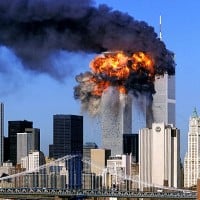
The 9/11 attacks led to the War on Terror, the rise of Islamic extremism (including al-Qaeda, ISIS, and Boko Haram), and wars and conflict across the Middle East and beyond.

The Russian invasion of Ukraine was a violent and devastating event that started in February 2022 and continued for over a year. The invasion triggered a massive humanitarian crisis, as millions of Ukrainians fled their homes or were displaced by the fighting. Russia used airstrikes, missiles, and ground troops to attack Ukrainian cities and military targets, claiming to protect the rights of ethnic Russians in Ukraine. Ukraine resisted the invasion with the support of its allies but lost control of several regions to Russia. The war caused widespread damage and suffering and threatened the stability and security of Europe. It was a terrible thing that happened in the 21st century!

The global recession of 2008-2009 caused high levels of unemployment and suffering in many parts of the world, especially America and Europe. Production and investment were reduced, people lost their homes and savings, and Europe fell into a debt crisis that lasted until 2014. Incomes became more unequal, with the rich getting richer and the poor staying poor. Some people believe the Great Recession led to Brexit and to the rise of right-wing populism (for example, Trump, Bolsonaro, and Modi) and left-wing populism (Occupy Wall Street, Bernie Sanders, and AMLO) in many countries.

Agreed, but it has led to people walking around in the busiest parts of the city with their noses buried in their phones, scrolling through social media, and liking post after post.
Along with the Internet and Wi-Fi (which were invented before the 21st century), smartphones have revolutionized the way human beings spend their time, communicate with each other, consume entertainment, and learn about the world.
Certainly a huge advancement, for better or for worse.
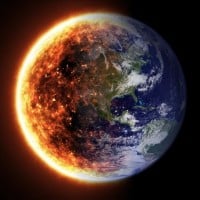
Global warming has increased dramatically so far in the 21st century. We've already seen droughts, flooding, and other extreme weather events because of climate change. These events are expected to get much worse in the next few decades.
Many governments are trying to move away from fossil fuels to clean energy and electric alternatives. However, the world is still reliant on fossil fuels, and carbon emissions are still increasing.
This will grow increasingly relevant over the years.
Agreed, global warming has really been affecting the Earth. That image is true as well (one half is destroyed and the other half is okay).
The Arab Spring was a series of uprisings across the Arab world against their governments in 2011. In some cases, these uprisings led to new democratic governments, but in many cases, they led to horrible wars that killed over a million people, including the civil wars in Syria, Libya, and Yemen (the Yemen War is still ongoing today in 2022). These wars caused a major refugee crisis, and Islamic extremist groups like ISIS and Boko Haram took advantage of the chaos to take more control. From 2018 to 2022, there was a "new Arab Spring," with more anti-government protests across the Arab world.

While a few social media platforms existed before 2001, social media really exploded in the 21st century with the launch of platforms like YouTube and Facebook. Like the invention of smartphones, social media has revolutionized the way human beings spend their time, entertain themselves, communicate with each other, and learn about the world, for good or for bad.

The US invasion of Iraq in 2003 caused a major war and had ripple effects across the Middle East for decades. The US quickly overthrew the regime of Saddam Hussein, but the war continued until at least 2011, and hundreds of thousands of Iraqis died. More Muslims were radicalized against the West because of this war, and it led to ISIS and another deadly war in Iraq from 2013 to 2017.

The election of Donald Trump was surprising and shocking for many people. It is associated with the rise of right-wing populism in many countries, including Brazil, India, and the Philippines. Americans became more politically divided under his presidency, and Trump was impeached twice.
Some notable events during his presidency were the COVID-19 pandemic, the 2021 Capitol riots and attempts to overturn the election, the 2017 corporate tax cuts, anti-immigrant policies, the defeat of ISIS, and the beginning of what many people call a new cold war with China.
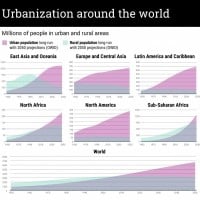
In 2000, 40% of the global workforce worked in agriculture, and 46% of people lived in urban areas. By 2021, only 27% of the global workforce worked in agriculture, and the percentage of people living in urban areas climbed to 56%. This is mainly because farmers began to use new technology and more efficient farming practices, so they needed fewer workers. Their workers then moved to densely populated cities and slums. This will have major effects on the world, tearing apart and reshaping economies, cultures, communities, governments, belief systems, and eventually leading to smaller families and a shrinking global population.


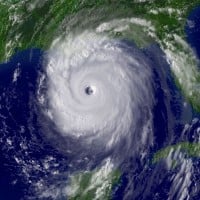
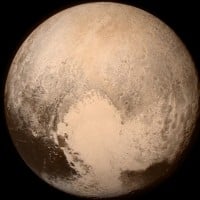
Pluto (the former 9th planet in our solar system) was demoted from a planet to a dwarf planet on 8/24/2006.
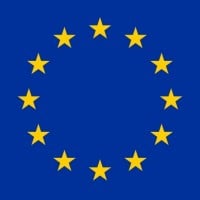

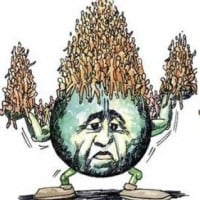
In some countries, yes, but in the majority of countries, no. Earth can still sustain billions of people. If we are talking about resources for each person, society already produces more basic needs than what's enough to sustain everyone, thanks to industrialization. The problem is that there's a distribution/mismanagement issue that needs to be solved. It's not going to snowball into a huge issue because the fertility rate is not constant.
If this isn't fixed, nothing else will make any difference at all.
It was a monstrous horde machine-gunning families hiding in bunkers to death, burning homes with children inside, raping captives, and exhibiting barbarism on a mass scale. I called it a massacre of civilians because that is what it was.


